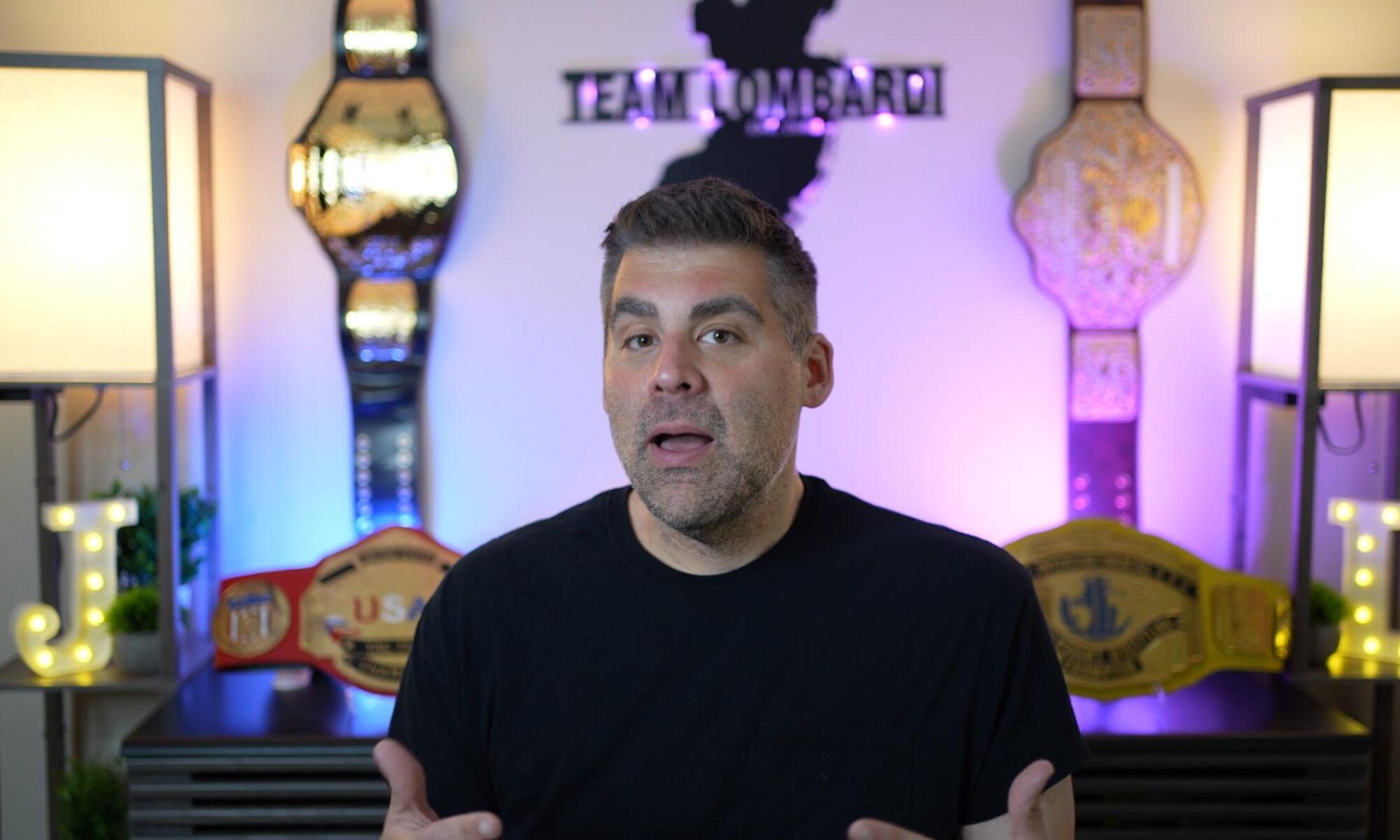( @jerseyfreshale, @drinkingmadeeasy, #beer)
After watching Beer Wars a few months ago, I wondered how some of my local breweries were doing and how they got started. Thanks to Drinking Made Easy’s reputation, I reached out to Flying Fish head brewer and owner, Gene Muller and he graciously agreed to an interview. During our conversation we talk about Flying Fish’s history, how they survived the first few years, and the current market.
Gene, what made you decided to start a brewery?
I was a reluctant entrepreneur. I was home brewing and just got the idea to go to brewing school. I wanted to open a brew pub and wrote a business plan. That morphed idea morphed into the actual brewery.
I went to brewery school, in 1994 I did a short class and went for a longer degree class in 1995. After that, I decided to start a brew pub but had never ran a business or a restaurant and had never brewed. Financing was difficult, so we morphed the idea into a production brewery but we were still struggling.
The Internet was just starting to happen, so I got the idea to build a website. I had some friends that were artists help me out with some of the art stuff and we got a site put together. There was no beer, we only sold t-shirts, pint glasses, etc. I was able to learn HTML and keep it going.
Basically it was the worlds first virtual microbrewery. I sent out press releases and sometimes it is better to be lucky than good. Like I said the Internet was just happening; we got a lot of media coverage for that. That drew the attention of a bank and some investors. That happened in August 1995 – in April 1996 we got the final financing and started brewing in August 1996.
How hard was it in 1995 going up against the big 3?
When we first started brewing in August of ‘96, it was when the whole craft beer bubble blew up. There were little brew pubs from Colorado sending bottled beer to New Jersey and we came out into the market just in time for it to crash. Everyone thought craft beer was just a fad and there was too much out there, so it wasn’t against the big 3, it was just trying to get into the market.
In South Jersey, if bars had Sam Adams or Guinness, that was considered good beer. Nobody was asking for craft beers. People that were into better beer went to Philadelphia where there was a better selection. It took two years just for us to get traction and slowly build. For instance, its only been the last couple of years at the Jersey shore that we have built a following.
Shore bars only have 120 days to make money, and they know how much Coors and Yuengling they can sell, so they didn’t want to take a chance on something new. Eight years ago there weren’t any beer bars in South Jersey and now they are all over the place.
There are thousands of small breweries, but the big 3 still take up most of the market share – what is it like to run the brewery in today’s climate?
It is exciting that people are looking for more craft beer, but its a fickle audience. There are so many beers coming in from other parts of the country, you get some places that always want something different. It will be interesting to see if that is the new normal. It is an exciting time, especially in New Jersey because we were on the trailing edge of this industry.
What’s weird in New Jersey is that you have all the imports coming into North Jersey or Philly, and there has always been such a good selection, it initially kind of hindered local beers. I feel like now it has turned around, but it was difficult at first to get someone to try something they never heard of.
What is it like running a brewery in New Jersey? Is it hard knowing you can’t sell your beer in big stores like Walmart in your own state and in Philadelphia?
Every state has its own weirdness, so it’s just a matter of figuring out the regulations for each one. Brewers go to New Jersey hoping to get legislation to reduce some of those. It is a highly regulated industry, and stuff has just been cobbled together since prohibition. If we are at a beer festival in New Jersey, I can’t stand behind a table and pour somebody a beer and talk about how it pairs with food. Hopefully we can get some of those regulations more consistent.
Is it better for a smaller brewery to be sold at the bigger stores or the smaller ones that know your product better?
The states we are in (PA, DE, NJ, MD) are more controlled by smaller stores and smaller chains, while in other states – everything is bought out of the super market or drug store.
With the little liquor stores, you can deal with the individual. If it got to be like other states where you can get beer at convenience stores, it really will shut out a lot of the smaller brewers. The smaller brewers are better served by small businesses.
I am a local customer, but Drinking Made Easy has a world wide audience. What is your current market reach? Can international customers purchase Flying Fish beer?
Right now most of what we make, we sell within 100 miles of our brewery. We also just made a partnership with Total Wine, so they are distributing in California, Nevada, New Mexico, Arizona, Virgina, the Carolinas, Georgia, and Florida. It is about 65 stores, and it is a way to test the market in other states.
We are also trying to purchase another building to triple our size. Right now we are at full capacity, if not more, so we can’t really expand where we are distributing.
Your “Exit” series of beers are great. Where did you come up with the concept and the naming ideas?
We came up with a bunch of concepts and one was the Exit series. Everywhere you go, as soon as you say you are from New Jersey, everybody asks what exit you are from. At industry events, everyone we encountered had a New Jersey connection.
It is tough being a brewery in New Jersey. You hear about a beer brewed in New Jersey and it is not always going to be the same image as a beer brewed in Colorado or Oregon. So its a little tougher. We wanted to have fun with it and let people know there was a lot of good stuff in the state. It is still a work in progress; we don’t have the whole thing mapped out. The series evolves as we decide which ones to do next.
Running a brewery can’t be all sunshine and roses, what are the biggest headaches?
We are a highly regulated industry so there is a lot of record keeping and paper work for the feds. Two years ago they came into audit us for beer taxes; they were really nice people but here for five weeks. Running the brewery is like any other small business: you are doing manufacturing, marketing, personnel stuff. A lot of people think “all I want to do is make good beer”, but you have to be able to sell it.
There is a lot of good beer out there but nobody knows about it because its not getting out. We are dealing with every kind of regulator: waste water, FDA, etc. Most of the rules were made for big companies so you have to figure out how to deal with it and be in compliance.
Issues aside – what is the best part about running your own brewery?
At the end of the day when I finish my paperwork, I can have a beer and say I’m still working. Quality Control. It is a collaborative industry, I was down in DC doing legislative stuff, and pretty much everyone is open with each other and share information, they are friendly. I can pick up the phone and call almost anybody with a question I have or ask their thoughts on something we’re doing. Since we pretty much all came to this industry from somewhere else, its not our grandfathers owned breweries and we all grew up feuding. We are all kind of in it together.
What is your future focus?
Hopefully by this time next year we will be in a new home and have new beers coming out. If the legislation changes then all the brewers can have some more flexibility, which would be great for marketing New Jersey beer.
—
As mentioned in the article, Flying Fish has been running its website since 1995 (flyingfish.com). Besides basic information about the company, the site provides a wealth of knowledge about brewing and writing business cases. I highly recommend it to any beer enthusiast.
I want to thank Gene Muller for giving up his time to talk with me and the Drinking Made Easy audience, keeping those Exit beers coming!


